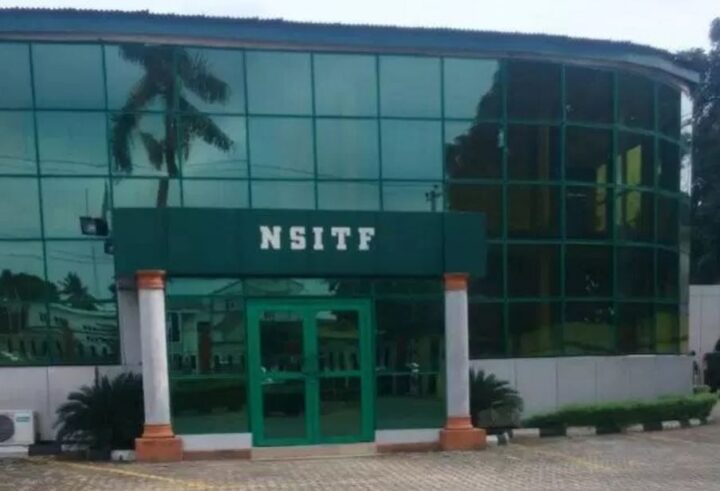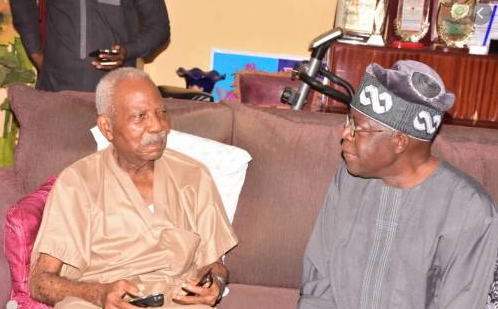What comes to mind anytime this company called NSITF (National Social Insurance Trust Fund) comes up in the news? Fraud. That’s right. The key news that stems out of that organisation is all about embezzlement and mismanagement. The latest bad news – after some calm – was that an official of the organization claimed that termites may have eaten up receipts and documents for several years as they were stored in some container outside their premises. The amount in contention was N17.85 billion.
This statement was of course slightly sensationalised by the media and became another embarrassment for the government at large, to the extent that NSITF had to take out pages in the newspapers to explain what its official meant and so on. However, people have become tired of these explanations and a permanent gorge seems to have evolved into a chasm between the leaders and the led, the government and the people. I was therefore miffed when sometime last year, I received a letter from the NSITF saying they intended to come and inspect my books in my small company. Indeed, it was the first time any agency would come inspecting – apart from our regulator of course. Why would NSITF come to disturb me in my office? I wasn’t even happy paying them, but I’m being forced to do so statutorily. Apart from NSITF, yearly, I make payments to Industrial Training Fund (ITF), remit to pension fund administrators for staff, obtain a certificate from the National Pensions Commission (PENCOM), and of course pay company income and personal income taxes. All the works.
So, I wrote back to NSITF that as much as they wish to inspect our books for compliance and propriety, I was also interested in getting explanations for some of the egregious waste of the monies we had been paying them in 16 years of our operations. I itemised some of the scandals in the newspapers about the fund as follows:
- Ministry accuses NSITF Management of N3.4 Billion Fraud (Premium Times, July 4, 2020)
- Fraud: FG Uncovers N62.555 Billion Unaccounted for in NSITF (Nairametrics July 19. 2018)
- Reps to Prove N2.3 Billion NSITF Fraud (The Nation December 18, 2019)
- FG Inaugurates Panel to Probe Alleged Fraud against NSITF MD, Others (ThisDay July 16, 2020)
- N6.4bn NSITF Fraud: Ubani Withdraws Suretyship of Olejeme, Blasts Magu (DailyPost April 17, 2021)
- Another Alleged N48bn Fraud Scandal at NSITF (National Daily, July 22, 2020)
- Alleged N18bn Fraud: EFCC Arraigns ex-NSITF Boss, 4 Others. (Blueprint. Nov 27, 2017)
It was the much I could get in a quick Google search. Paying hard-earned money to NSITF felt very much like dumping money in the ocean or setting money on fire. Perhaps worse. I couldn’t get it off my mind that I was paying some lucky civil servant, labour union leader, or political appointee to continue to build his/her misguided empire. The last five management teams of this organisation have been dismissed in disgrace with serious allegations of fraud. Perhaps more.
Advertisement
The Somefun-led management alleged bullying by the minister of labour, Chris Ngige, but I’m not sure it was able to prove its own fidelity. It had to be ejected. These are people appointed by the sitting president or vice president of the federal republic. Every year or two, it’s about huge billions getting missing. I am personally traumatised and I’m sure it’s the same for all Nigerians, especially people who run companies and adhere to the statutory requirement of paying NSITF.
Of course, the NSITF representative that came to my office merely pleaded with me that he was not a management staff and that all the ‘stealing’ happened at the ‘top’ in their office. He didn’t deny that he worked in a place riddled with corruption, theft, and wanton stealing. Honestly, I appreciated his honesty. He sort of pities us, the payers. I think more payers should ask NSITF more questions because we cannot just be dumping money into a blast furnace every year. And NSITF should know that it has quite a nerve asking to come and inspect the books of companies given its own sordid records which need to be repaired from within.
And so, the other day I was discussing this with a friend, and he said to me that NSITF is meant to be our own DOLE (Department of Labour and Employment) in the UK. Everyone knows that in the UK, able-bodied men till tomorrow queue up in the labour department to collect cash for survival. That is called ‘queueing for the dole’. Whereas we have been forced lately – especially by COVID-19 – to set up several ‘conditional cash transfer’ schemes with varying levels of efficiency and accountability, we do not yet have a well-established system like the United Kingdom. The question is also whether we need and want any of such. If the UK has achieved a lot over the centuries, we haven’t done much here, and there are myriads of opportunities for work in a developing nation such as ours. Yet, it is worth investigating whether NSITF was conceived initially with the intention of being our own DOLE and backing up people who lost their jobs or who don’t have one. Why the name Social Insurance Trust Fund? It must mean that this agency of government was intended to anchor social insurance in a big way.
Advertisement
How then did NSITF become a place that only caters for “injuries sustained on the job”? People who say we have all the agencies we need in Nigeria to function like those countries that our young – and not-so-young – are “Japaing” to today are very correct. If we check very carefully, all the great ideas are here but we have a way of ensuring that good ideas don’t work or become liabilities to the system. Why create a ministry of humanitarian affairs when we have NSITF? Why is NSITF under the ministry of labour? Perhaps it is an idea muted by labour leaders. All the same, rather than this current status where the organisation is adrift, claiming to pay people who sustained accidents on the job (not those who die, mind you), effectively narrowing its scope and responsibility and becoming a slush fund for labour leaders and politicians alike on the sweat of innocent companies who pay yearly, the next government should notice this organisation as a very likely catalyst for great impact on the people.
I don’t run a factory. People don’t get injured in my office. The NSITF does not cover injuries outside the office but I pay, and so do hundreds of thousands of organisations. Why? Someone should compare the collections against their payout of liabilities and we will see that the margin is as wide as the Atlantic Ocean. Personally, I want to say that private companies do not have so much money to waste on NSITF. Nigerian companies need to be encouraged to pay statutory taxes and other dues properly. Agencies such as the NSITF have so far been a source of discouragement in that regard. Accountability is very paramount.
The scope of NSITF should be very national. Its purview should be every Nigerian suffering everywhere. Imagine that the country is submerged in floods now and not a word from a Social Insurance Trust Fund. A fund into which – like the TETFUND – Nigerian companies pay incredible amounts of money waiting to be embezzled! We can see the impact of TETFUND in our tertiary institutions, can’t we? Where is the impact of NSITF? This is not acceptable. I believe that indeed, the process of reviewing and resetting the raison d’etre of this fund should start now. And no crazy labour leader should stand in the way. It is a national fund, not a receptacle for the collection of labour dues. Labour leaders can continue to become billionaires on those other funds within their purview from their members.
The injustice and corruption that has become NSITF must stop immediately. The next government please take copious notes. In the United Kingdom that I am used to, it is the contribution of ‘NI’ – national insurance – that is used for the many big interventions – health, education, unemployment benefits – that our people now run to, embarrassingly plonking their extended families along and further damaging the sullied image of Nigeria. I can’t blame most of them. It’s the slackness over here.
Advertisement
Views expressed by contributors are strictly personal and not of TheCable.
Add a comment







